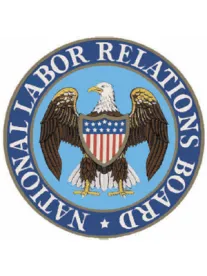At some point – and often with considerable frequency – employers must conduct internal investigations related to possible employee misconduct. Whether those investigations involve allegations of sexual harassment, hostile work environment, violation of drug or alcohol policies, theft, damage to equipment, or the like, maintaining confidentiality in the investigatory process is vital to ensuring the integrity and overall fairness of the investigatory process. Thus, it is of little surprise that in the course of conducting workplace investigations, employers frequently instruct or request employees that to maintain the confidentiality of the investigation, and that they should not, for example, discuss the investigation with coworkers while it is ongoing. Such an instruction/request makes sense, as if employees share information while an investigation is being conducted, a host of problems can arise, from employees conforming their versions of events, to information being covered up and testimony being fabricated, to witnesses being threatened or intimidated.
At the other end of the spectrum, the National Labor Relations Act provides that employees have the right to engage in protected, concerted activity for mutual aid or protection. This right has been deemed to include the right to discuss disciplinary matters, including investigations, involving themselves and coworkers. This creates an obvious tension between an employer’s interest in ensuring that its investigation is not corrupted or otherwise interfered with, and employees’ right to discuss the investigation among themselves.
In 2012, the National Labor Relations Board held in Banner Estrella that a balance must be struck between these competing interests. The Board in that case held that striking that balance required that an employer be prohibited from issuing a blanket confidentiality instruction or request in connection with a workplace investigation, and instead that an employer demonstrate that any request for confidentiality that would interfere with employees’ rights to discuss an investigation be supported by evidence demonstrating that the employer had an objective, legitimate business reason for imposing a confidentiality requirement (or even making a request for confidentiality), such as the need to protect witnesses, that evidence was in danger of being destroyed or testimony being fabricated, or the need to prevent a cover up.
The effect of the Board’s 2012 Banner Estrella decision, however, was short-lived, as it was vacated by the U.S. Supreme Court’s decision in Noel Canning. Thus, the case returned to a new NLRB panel to reconsider and redecide the issue.
On June 26, a Board majority (Members Hirozawa and McFerran, with Member Miscimarra dissenting) once again found the employer’s blanket confidentiality requirement in Banner Estrella to be unlawful, for largely the same reasons as the Board’s original decision. In its 2015 decision, the Board adhered to its previously-expressed position that an employer commits an unfair labor practice by imposing a blanket confidentiality requirement that employees not discuss workplace investigations with coworkers, and that individual confidentiality instructions or requests are unlawful unless the employer can demonstrate that it has an “objectively reasonable basis for seeking confidentiality” during the particular investigation at issue.
Regrettably, the decision offers no more guidance to employers. To be sure, all investigations benefit from and are enhanced by confidentiality. It is difficult to imagine a scenario in which if employees are allowed to freely discuss an ongoing investigation, the fairness and accuracy of that investigation is not compromised to some degree. The Board’s Banner Estrella decision nonetheless places the burden on the employer to demonstrate why a confidentiality instruction was legitimate and appropriate, rather than taking the position that requiring confidentiality is always in an employer’s legitimate business interest, and thus requiring that an employee prove why they should be permitted to undermine an investigation by disregarding a confidentiality instruction.
The takeaway here is two-fold. First, employers should use caution when investigating workplace issues not to issue a confidentiality instruction unless the circumstances warrant. Second, any written policies maintained by employers regarding investigations or confidentiality more generally should be reviewed to assess whether they contain a blanket confidentiality requirement in investigatory matters that the NLRB may conclude violates Banner Estrella.




 />i
/>i

